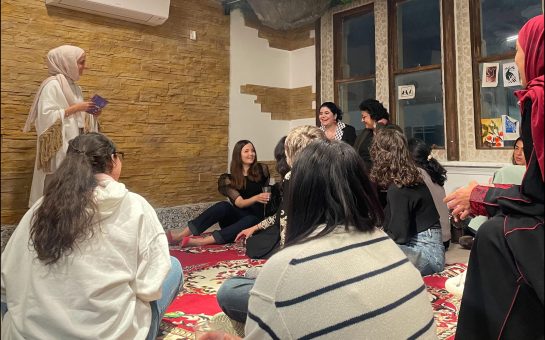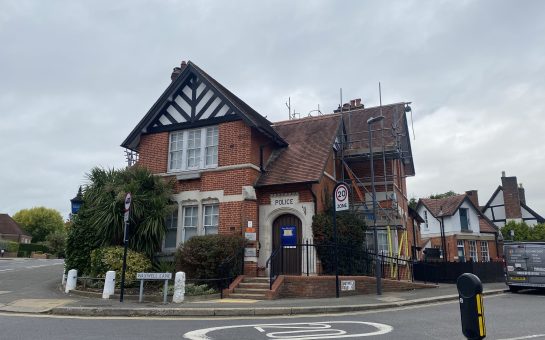The number of domestic abuse survivors in need of homelessness support from London councils has nearly doubled in the last five years, as reports of domestic abuse reach an all-time high.
Last year, nearly 6,000 domestic abuse survivors were owed homelessness duties from London councils, an increase of over 2,500 since 2018, Ministry for Housing Communities and Local Government (MHCLG) data shows.
These duties help prevent homelessness or provide safe accommodation for at least six months to those who are already homeless.
Across England, applications to Domestic Abuse Safe Accommodation (DASA), which provide refuge for domestic abuse survivors, have risen by more than 40% in the last five years.
This comes as the number of households nationwide who are eligible for long-term housing support from their local authority due to domestic abuse, also known as a main duty, hit just under 5,000 in 2024.
Kirsty Heath, whose daughter Olivia Cull was moved into safe housing due to domestic abuse, said: “The council moved her pillar to post, from one temporary accommodation to another.
“I think there were four all in all, moving the children with her all the time. By the time she left, she was just a shell, she’d got nothing left in her.”
After two years of domestic abuse, it was Kirsty who encouraged her daughter to seek support from the local council.
The council established that Olivia was in the top 10% of risk of domestic homicide in the county in a Multi-Agency Risk Assessment Conference (MARAC).
Despite this, the only DASA available to Olivia was more than two hours away from her home at the time.
Kirsty said: “What they try to do is push you out to another county so you’re not their problem.
“At the moment there is nothing to protect victims and they’re being forced away from their families and their support network.”
Moving would have resulted in Olivia’s four children, aged between two and nine, being taken away from their school, which Kirsty described as the one constant in their lives.
Kirsty said there was constant victim-blaming from the council, who told her daughter if she wasn’t prepared to accept the accommodation offered, the abuse couldn’t have been “that bad”.
She continued: “This is what puts women off coming forward, and this is why they end up being killed.
“Some people aren’t that strong – what happens to those people, what happens to those families?
“They just fall into statistics unfortunately.”
An Advance Charity Independent Domestic Violence Advisor (IDVA) for Housing said: “If survivors are not able to access support there could be an escalation of abuse.
“In severe cases, there could be risk of homicide or of rough sleeping, which makes survivors even more vulnerable.”
The London Whole Housing Services Partnership (LWHSP) led by Advance works alongside local authorities to provide emergency safe accommodation and longer-term housing support for domestic abuse survivors.
The most significant increase in applications for homelessness support was seen from 2019/20 to 2020/21, when numbers rose by 27%, and they have not since returned to 2018/19 levels.
For the past three years, the highest number of domestic abuse survivors who applied for homelessness support was in Brent.
Though numbers decreased by 16% last year from the council’s peak of 913, Brent still received at least 7% more applications than any other London council in 2023/24.
Leader of Brent Council and Cabinet Member for Housing Cllr Muhammed Butt said: “What we’re seeing in Brent is part of a broader national trend, with more victims of domestic abuse coming forward for help.
“In response, we’ve bolstered our Domestic Abuse Housing Team of dedicated officers, who are trained to support victims and help find them safe accommodation.”
Following an increase for the first time since 2020, Southwark had the third highest number of applications for homelessness support from domestic abuse survivors last year.
Southwark Cabinet Member for New Homes and Sustainable Development Cllr Helen Dennis said: “We have worked to keep survivors of abuse safe in their own homes, focusing on evicting the perpetrator or supporting people into safe refuge accommodation.
“We have embedded experts within our homelessness services as specialist advisors to people seeking help.”
The council with the highest increase in the last year was Islington, where applications for homelessness support rose by 163%.
The Londoners reached out to Islington Council, but they were unable to respond due to capacity constraints.
An Advance Charity Housing IDVA attributed the increase in applications for homelessness support across London to an increased awareness of domestic abuse and the aid available to survivors.
Despite this, the number of bed spaces available in DASA across London was only a thousand compared to the 14,000 referrals made in 2024.
This trend reflects a national bed shortage, where bed spaces only covered 26% of the 63,000 domestic abuse survivors referred to DASA in the same year.
In 2023/24, more than 2,000 households were unable to be supported at DASA in London, according to MHCLG data.
At least 120 applicants in London were denied support after being evaluated by their council as not at risk of domestic abuse, show responses from London councils to Freedom of Information requests.
There is no legislation requiring applicants to give proof of violence in order to be provided with DASA.
The Housing Act 1996, Section 177 states: “It is not reasonable for a person to continue to occupy accommodation if it is probable that this will lead to violence or domestic abuse.”
Local authority homelessness duties cover prevention duties, which stop a household from becoming homeless, relief duties, which provide accommodation for a household that is homeless and main duties, which ensure accommodation is immediately provided to a household in priority-need.
Mayor of London Sadiq Khan is currently revising the duties established under the Domestic Abuse Act 2021 to develop the London Domestic Abuse Safe Accommodation Strategy 2024-27.
The strategy intends to develop specialist homes for domestic abuse survivors, improve existing safe accommodation, and fund longer-term homes.
If you have been affected by domestic abuse, help and support is available with Advance Charity.




Join the discussion